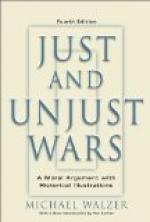On the steps and in the long corridors, men stood about, discussing the murder. Langham pushed his way resolutely through these groups and mounted the stairs. Moxlow’s door was locked, as he found when he tried to open it, but in response to his knock a bolt was drawn and a policeman swung open the door, closing it the instant Marshall had entered.
Langham glanced around. Doctor Taylor—the coroner—was seated before the desk; aside from this official Colonel Harbison, Andy Gilmore, Shrimplin, Moxlow, Mr. Allison, the mayor, Conklin, the sheriff, and two policemen were present.
“Thank you, that is all, Mr. Gilmore,” the coroner had said as Langham entered the room.
He turned and motioned one of the policemen to place a chair for the prosecuting attorney beside his own at the desk.
“As you know, Mr. Moxlow,” the coroner began, “these gentlemen, Mr. Shrimplin, Colonel Harbison and Mr. Gilmore, were the first to view the murdered man. Later I was summoned, and with the sheriff spent the greater part of the night in making an examination of the building. We found no clue. The murderer had gone without leaving any trace of his passing. It is probable he entered by the front door, which Mr. Shrimplin found open, and left by the side door, which was also open, but the crowd gathered so quickly both in the yard and in the street, that it has been useless to look for footprints in the freshly fallen snow. One point is quite clear, however, and that is the hour when the crime was committed. We can fix that almost to a certainty. The murderer did his work between half past five and six o’clock. Mr. Shrimplin has just informed us that the only person he saw on the Square, until he met Colonel Harbison, was John North, whom he encountered within a block of McBride’s store and with whom he spoke. While Mr. Shrimplin stopped to speak with Mr. North the town bell rang the hour—six o’clock.”
The coroner paused.
There was a moment’s silence, then Marshall Langham made a half step forward. A sudden palsy had seized him, yet he was determined to speak; he felt that he must be heard, that he had something vital to say. An impulse he could not control compelled him to turn in the direction of Andy Gilmore, and for a brief instant his eyes fastened themselves on the gambler, who returned his gaze with a cynical smile, as though to say: “You haven’t the nerve to do it.” With the tip of his tongue Langham moistened his swollen lips. He was about to speak now, and Gilmore, losing his former air of bored indifference, leaned forward, eager to catch every word.
“I would like to say,” he began in a tolerably steady voice, “that North left my office at half past four o’clock yesterday afternoon intending to see Mr. McBride; indeed, happening to glance from my window, I saw him enter the store. Before he left my office he had explained the business that was taking him to McBride’s; we had discussed it at some length.”




